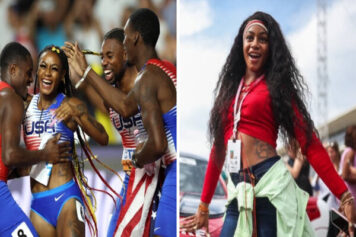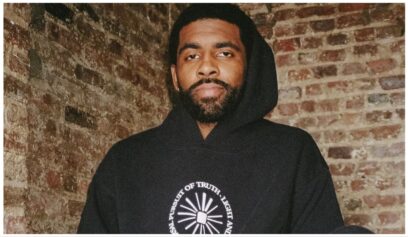Name, image and likeness deals (NIL) have already altered the landscape of college athletics, by allowing college athletes to finally profit from their labor. For high school students, they are subject to the laws and rules of their particular state and high school associations. High school athletes in the state of Texas may soon be allowed to capitalize on endorsement deals, and the coaches and officials at the Texas High School Coaches Association are preparing for that inevitability.
“We are not promoting NIL at this point,” THSCA executive director Joe Martin said. “This is not what we want to do, but we want to have as much information as we can to help our coaches. We will follow the Legislature in January.”
Martin and the coaches are trotting out the same lines that peers at the collegiate level have been parroting for years prior to NIL coming into effect and now that it’s here. They express faux concern for their student-athletes being taken advantage of by unscrupulous actors. Sure, that’s a possibility. But if the well-being of your student-athletes is your main concern, don’t limit their opportunities. Put safeguards in place to protect them.
While Martin and the coaches won’t currently advocate for NIL deals, they want to be prepared so that when the day does come, they are up to date.
THSCA announced a partnership with Eccker Sports to help educate their coaches so they can help student athletes and their parents navigate the world of NIL. Again, it is on the adults, who say they care about the kids, to ensure that everything is on the level and that the kids get fair deals.
Eccker Sports offers a robust service, including video curriculum to educate all users on the history of NIL, key terms and concepts and suggested best practices. Additionally, Eccker Sports has a resource hub with the most comprehensive library of NIL information for the high school constituency, including articles, state laws, abstracts, summaries, bylaws, interpretations, as well as college and university policies and procedures.
“Understanding NIL can be a real challenge for high school coaches and educators,” Martin said. “It is essential to have up-to-date information on this quickly evolving issue.”
In many states, parents move their kids to different districts for athletic advantages. Is it unreasonable to think parents would move their kids to neighboring states with favorable NIL rules?
California allows high school students to earn money on NIL deals, and Nike signed its first high school NIL deal last week. They inked soccer stars Alyssa and Gisele Thompson to a multiyear commitment involving monetary compensation.
If a high school student athlete is deemed marketable enough and a company wants to pay them money to use their name, image and/or likeness for a specified time period, what’s wrong with that? Once proper guidelines that can be established are met and the parents and/or guardians are OK with the brand and their child’s affiliation, it should be OK.
The majority of high school athletes will not play at the collegiate level. Even fewer will turn professional. If there is an opportunity to bank some money at an early age, it can give someone a head start in life where they otherwise won’t have one. That should be something everyone can get behind.



